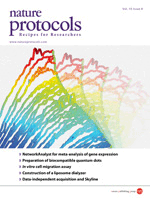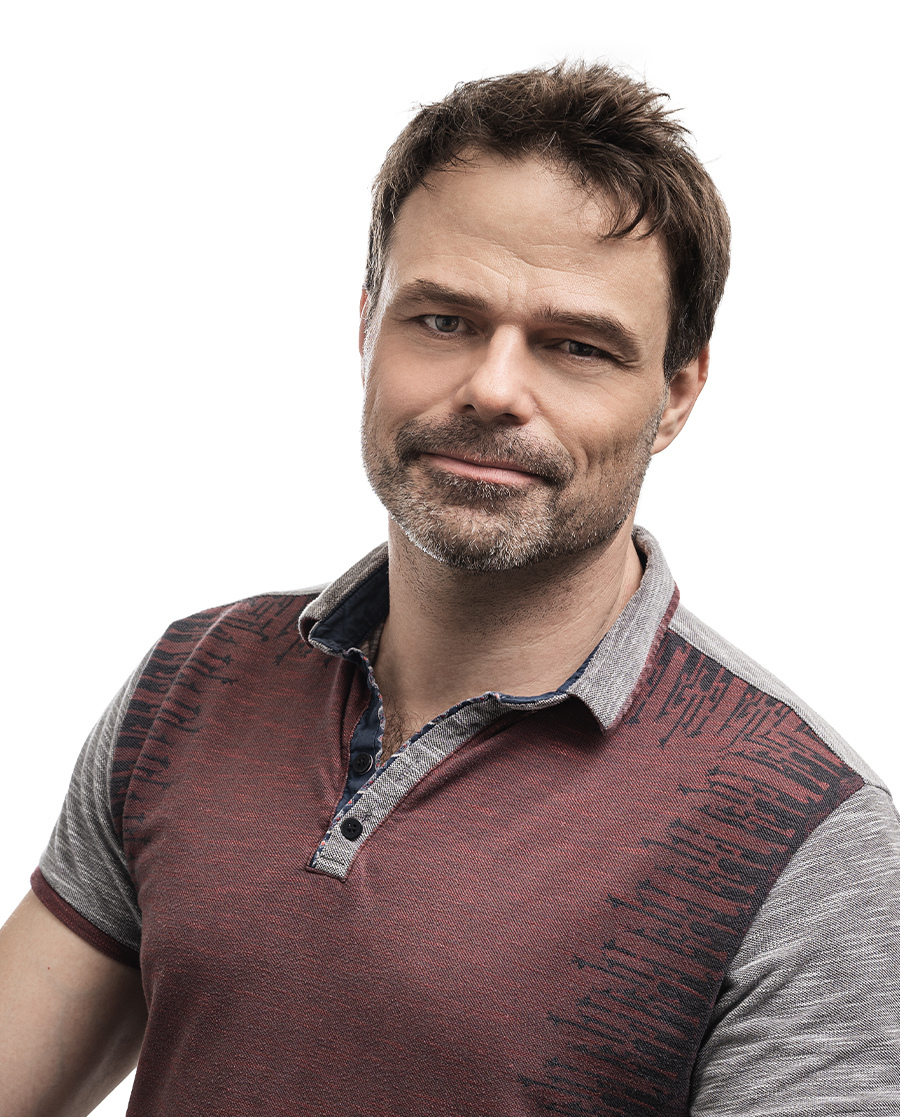
Cellular stress
Laboratory of Genome Integrity
Cellular stress pathways are essential for cancer cells' survival and significantly contribute to therapeutic resistance. They help the cells to deal with various cancer hallmarks, including elevated DNA damage accompanied by accumulation of mutations, DNA replication problems, accumulation of defective proteins, free radicals, nutrient deficiency, hypoxia, etc. Our methods and expertise identify and target these stress pathways directly inside cancer cells. Such research has great potential in finding new prediction markers, improving standard anticancer therapy, and suggesting new therapeutic targets.
Research interests
- DNA damage and repair and genomic instability
- Replication stress
- Proteotoxic stress and proteostasis
- Mechanical stress
- Oncogenic and free radicals stress
Current projects
- Exploration of mechanical stress-promoted perturbation of the cell cycle in cancer cells.
- Identification and structural characterization of novel NPL4 inhibitors and insight into its mode of action.
- Cannabidiol as a potential attenuator of the efficacy of chemotherapeutics.
- Development of nano-formulated diethyldithiocarbamate-copper complex as an anticancer drug.
- Identification of new compounds with senolytic effect and mechanism of their action in senescent cells.
- Insight into cellular proteotoxic stress response using new microthermal protein damage methodology.
- Effects of long-term mild hypothermia (fever-like hyperthermia) on cancer cells.
- Cellular DNA damage response in the context of cance.
Selected publications
Alcohol-abuse drug disulfiram targets cancer via p97 segregase adaptor NPL4.
Nature.
2017,
552(7684),
194-199,
ISSN: 0028-0836,
PMID: 29211715,
Superresolution live imaging of plant cells using structured illumination microscopy.
Nature Protocols.
2015,
10(8),
1248-1263,
ISSN: 1754-2189,
PMID: 26203822,
Patents
MOLECULAR COMPLEX ASSEMBLY PARTICLES COMRISING BIS-R1, R2-DITHIOCARBAMATE-METAL COMPLEX AND A LIGAND, METHOD OF PREPARATION AND USE THEREOF "DISULFIRAM II" (Mistrík)
- Published Application EP 18199181.1 under EP 3636285 (15.4.2020)
- Published Application PCT/EP2019/077222 under WO 2020/074514 (16.4.2020)
- Patent: AU 2019358428. Granted: 4.8.2022. Ownership: Palacky University Olomouc. Inventors: Mistrík Martin, Bártek Jiří, Škrott Zdeněk, Džubák Petr, Hajdúch Marián
- Patent: JP 7220932. Granted: 3.2.2023. Ownership: Palacky University Olomouc. Inventors: Mistrík Martin, Bártek Jiří, Škrott Zdeněk, Džubák Petr, Hajdúch Marián
Status: Patents pending, Available
MCOPPB FOR USE AS MEDICAMENT (Mistrík)
- Published Application EP 18166780.9 under EP 3552605 (16.10.2019)
- Published Application PCT/CZ2019/059320 under WO 2019/197564 (17.10.2019)
Status: Patent pending, Available
BIOAVAILABLE DITHIOCARBAMATE-METAL COMPLEX NANOPARTICLES, METHOD OF PREPARATION AND USE THEREOF "DISULFIRAM I" (Škrott)
- Patent: EP 3459526. Granted: 24.2.2021. Ownership: Palacky University, Olomouc. Inventors: Škrott Zdeněk, Mistrík Martin, Hajdúch Marián, Bártek Jiří, Džubák Petr, Zbořil Radek.
- Published Application PCT/EP2018/076098 under WO 2019/063601 (4.4.2019)
- Patent: AU 2018340510. Granted: 5.8.2021. Ownership: Palacký University Olomouc. Inventors: Škrott Zdeněk, Mistrík Martin, Hajdúch Marián, Bártek Jiří, Džubák Petr, Zbořil Radek.
- Patent: CA 3,076,855. Granted: 26.4.2022. Ownership: Palacký University Olomouc. Inventors: Škrott Zdeněk, Mistrík Martin, Hajdúch Marián, Bártek Jiří, Džubák Petr, Zbořil Radek.
- Patent: KR 10-2456683. Granted: 14.10.2022. Ownership: Palacký University Olomouc. Inventors: Škrott Zdeněk, Mistrík Martin, Hajdúch Marián, Bártek Jiří, Džubák Petr, Zbořil Radek.
- Patent: JP 2020-537873. Granted: 29.9.2022. Ownership: Palacký University Olomouc. Inventors: Škrott Zdeněk, Mistrík Martin, Hajdúch Marián, Bártek Jiří, Džubák Petr, Zbořil Radek.
- Patent: MX 396,552. Granted: 17.10.2022. Ownership: Palacký University Olomouc. Inventors: Škrott Zdeněk, Mistrík Martin, Hajdúch Marián, Bártek Jiří, Džubák Petr, Zbořil Radek.
Status: Available
Open positions
| Projekt: | Cellular stress in health and disease |
|---|---|
| Vedoucí: | Mistrík Martin Ph.D., Moudrý Pavel Ph.D., Škrott Zdeněk Ph.D. |
| K dispozici: | 3 |
| Určeno pro: | Doktorské studium |
| Projekt: | DNA damage signaling in the cellular response to stress |
|---|---|
| Vedoucí: | Mistrík Martin Ph.D. |
| K dispozici: | 1 |
| Určeno pro: | Doktorské studium |
| Souhrn: | 1 place in full-time study |
| Projekt: | DNA damage signaling in the cellular response to stress |
|---|---|
| Vedoucí: | Mistrík Martin Ph.D. |
| K dispozici: | 1 |
| Určeno pro: | Doktorské studium |
| Souhrn: | 1 place in full-time study |
| Projekt: | Study of DNA double-strand break repair in tumor model |
|---|---|
| Vedoucí: | Mistrík Martin Ph.D. |
| K dispozici: | 1 |
| Určeno pro: | Doktorské studium |
| Souhrn: | The so-called double-strand breaks (DSB) are the most lethal DNA lesions, which can be potent sources of mutations and thus become the beginning of irreversible genetic changes leading to degenerative illnesses, including cancer. At the same induction of DSBs introduced in the proper setup can become an unsolvable problem for the cells, particularly in specific genetic backgrounds typical for cancer, which fact is the rationale for a plethora of cancer treatment strategies. Thus the way cells deal with DSBs is under the great interest of current medicinal and biological research. The Ph.D. student will practice several methods of induction of DSBs via various sources such as gamma rays, alpha particles, UV light and various chemical inducers. Next will be studied the molecular mechanisms the cell deal with this type of DNA damage. Emphasis will be put on differences between normal and cancer cells and their potential exploration for cancer therapy. Student will also learn mutiple laboratory techniques including cell culture, RNA/DNA transfections, advanced microscopic techniques, live-cell imaging, and various biochemical analysis of proteins. |
| Projekt: | Signaling DNA damage in cellular response to stress |
|---|---|
| Vedoucí: | Mistrík Martin Ph.D. |
| K dispozici: | 1 |
| Určeno pro: | Doktorské studium |
| Souhrn: | Our DNA is constantly under threat from DNA damaging agents. If unrepaired DNA damage can lead to errors during genome duplication, including the mutations that can lead to cancer, contribute to aging and other human diseases. Cells have evolved elaborate repair mechanisms to fix this damage and ensure that the genetic information is faithfully reproduced, and we would like to understand these repair mechanisms at the molecular level. We ultimately aim for a complete molecular and cellular understanding of critical DNA repair pathways that act on DNA damage. The Ph.D. student will practice several molecular and cellular techniques, including cell culture, RNA interference, immunofluorescence microscopy, live-cell imaging and immunoprecipitation of proteins. He/she will also learn novel and powerful techniques, such as super-resolution microscopy and purification of proteins on newly synthesized DNA. |
Group leader
Group members
BAKALÁŘSKÝ STUDENT, LIG
DOKTORSKÝ STUDENT, EX ZAMĚSTNANCI, LIG, MAGISTERSKÝ STUDENT
ÚMTM, LIG, PERSONÁL
ÚMTM, LIG, PERSONÁL
BAKALÁŘSKÝ STUDENT, LIG
ÚMTM, LIG, PERSONÁL
DOKTORSKÝ STUDENT, ÚMTM, LIG, PERSONÁL
EX ZAMĚSTNANCI, LIG, POSTDOKTORSKÝ STUDENT
ÚMTM, LIG, PERSONÁL
BAKALÁŘSKÝ STUDENT, LIG, MAGISTERSKÝ STUDENT
ÚMTM, LIG, PERSONÁL
ÚMTM, LIG, POSTDOKTORSKÝ STUDENT, PERSONÁL


